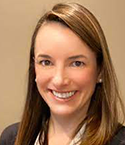| |
| |
| vol 19, num 3 | August 2021 |
| |
|
|
| |
|
|
|
|
|
| |
| Become a Pro Hac Vice Pro |
|
A nonresident attorney admitted to practice in one jurisdiction may need to provide legal services on a temporary basis apply in another. This article discusses the requirements for admission pro hac vice, limitations on what a nonresident attorney may do, and discipline of nonresident attorneys.
Application Requirements
A nonresident attorney will generally have to seek permission to appear pro hac vice (literally, “for this turn”). To be admitted, an attorney often has to file a form motion for admission and certify certain facts. For example, an attorney seeking admission pro hac vice in Delaware has to certify that she is eligible for admission to the bankruptcy court; admitted, practicing and in good standing in another jurisdiction; submits to the disciplinary jurisdiction of the bankruptcy court for any alleged misconduct that occurs in the preparation or course of the matter for which he or she is to be admitted; and is generally familiar with the court’s local rules. Applicable rules or procedures also frequently, but not always, require the attorney seeking pro hac admission to pay a fee. The amount of the fee and to whom the fee must be paid
vary.
|
|
|
|
|
| |
|
| |
| Circuit Courts Divided over Whether U.S. Trustee Fee Increase Is Constitutional |
| The U.S. Trustee Program (USTP), an arm of the Department of Justice that provides oversight for bankruptcies in all but two states, is funded by fees charged to debtors (U.S. Trustee fees). In Alabama and North Carolina, a Bankruptcy Administrator program, run by the Judicial Conference of the United States, provides a similar function and charges its own fees (Bankruptcy Administrator fees). Congress initially provided that the Bankruptcy Administrator districts would eventually become U.S. Trustee districts, but the division is now permanent.
The 2018 Fee Increase
In 2017, subject to certain conditions, Congress increased the U.S. Trustee fees for debtors with quarterly disbursements of over $1 million to offset an anticipated shortfall in funding for the USTP. Among other changes, the maximum quarterly U.S. Trustee fee was raised from $30,000 to $250,000, and the maximum charge was triggered by disbursements of $25 million rather than $30 million. Some judicial districts applied the increased U.S. Trustee fees to all cases pending as of Jan. 1, 2018. The Judicial Conference raised Bankruptcy Administrator fees only for cases filed on or after Oct. 1, 2018.
|
| |
|
|
|
|
| |
|
| |
| Subchapter V Eligibility: Recent Trends |
| The Small Business Reorganization Act (SBRA) became effective in February 2020. The SBRA, or subchapter V, is intended to encourage small businesses to use the Bankruptcy Code to reorganize by reducing the costs and administrative burdens associated with a typical chapter 11 case. For example, a disclosure statement is not required unless the court orders it; a trustee is automatically appointed to assist the debtor in developing a plan; there are no quarterly U.S. Trustee fees; only the debtor may propose a plan; and there are strict timelines that require subchapter V debtors to move the case quickly toward confirmation.
Recent articles analyzing the first year of subchapter V cases show that small businesses are taking advantage of this new law and the streamlined bankruptcy process it created. Indeed, there were approximately 1,537 subchapter V cases filed in the first year since the law took effect (through Feb. 18, 2021). Originally, the debt limit for a debtor to elect subchapter V was $2,625,625 in aggregate noncontingent liquidated secured and unsecured debt. However, the Coronavirus Aid, Relief, and Economic Security (CARES) act temporarily raised the debt limit to $7.5 million until March 27, 2021 — and the COVID-19 Bankruptcy Relief Extension Act recently extended this temporary increase to March 27, 2022. This means that subchapter V will be a viable option for even more small businesses over the next eight months, so practitioners should be aware of the common objections to
proceeding under subchapter V.
|
| |
|
|
|
|
| |
|
| |
| ABI's "Industry Viewpoints" |
| Want to learn more about the different industries that bankruptcy affects?
ABI’s got you covered! Check out our “Industry Viewpoints” video series, featuring ABI Editor-at-Large Bill Rochelle discussing various industries with prominent bankruptcy professionals. The first four conversations have been previously posted on our social media platforms (Facebook, Twitter, LinkedIn and YouTube).
Make sure to check out Bill’s most recent conversation with Scott A. Wolfson of Wolfson Bolton PLLC (Troy, Mich.) on the auto industry.
|
|

|
| Previous guests of “#IndustryViewpoints” have included:
Be sure to view the ABI YouTube Channel and follow ABI on social media (twitter.abi.org, facebook.abi.org or linked.abi.org) to be notified of upcoming episodes!
|
| |
| |
|
|
|
|
|
|
|
|
|
| |







